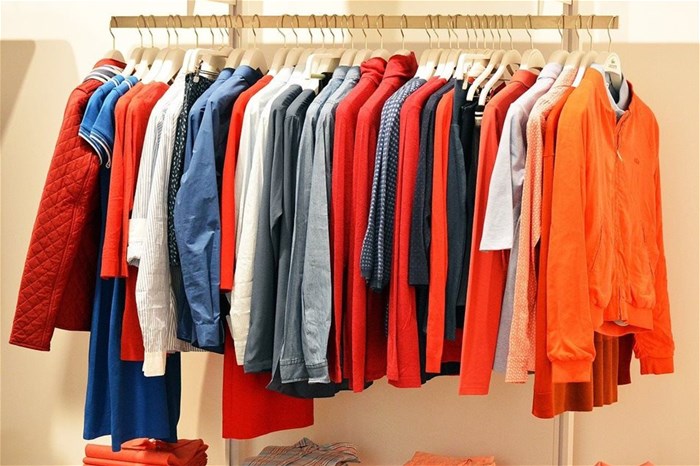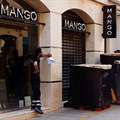In the world of fashion e-commerce, 'fast fashion' outlets are emerging as a formidable force, captivating the hearts - and wallets - of millions of online shoppers.
Trendy designs, affordable pricing and lightning-fast production cycles. These tick all the boxes for a digitally savvy, ‘want-it-right-now’ generation of shoppers. They’re looking for wide variety that is light on the purse strings, and international suppliers are giving them exactly that. To the detriment of local retailers. But why are these suppliers achieving such global market domination?
The meteoric rise of fast fashion suppliers such as Shein can be attributed to several key factors which local retailers must understand and respond to effectively:
Firstly, Shein has mastered the art of fast fashion by swiftly translating runway trends into affordable, accessible clothing. Local retailers must acknowledge that today's consumers seek the latest styles at affordable prices, and they must adapt accordingly.
Georgina Crouth 24 Aug 2023 Secondly, pricing strategies are designed to appeal to budget-conscious shoppers. By leveraging economies of scale, they can offer trendy clothing at unbelievably low prices. Local retailers should strive for cost-efficiency and explore creative ways to maintain competitive price points. Perhaps Artificial Intelligence (AI) could be a consideration in terms of automating tasks to cut down overheads.
The power of data cannot be disputed in this sector. Shein uses data analytics to identify trends, forecast demand, and optimise its product offerings. This enables them to cater to the ever-changing tastes of consumers.
Local retailers must be prepared to invest in data analytics to better understand customer preferences and refine their inventory accordingly. The age of hyper-personalisation is here, and shoppers expect their suppliers to know what they want and then some.
Finally, Shein has tapped into the most powerful form of advertising – influencer marketing. Their collaboration with influencers and social media stars to promote their products means that they are, quite literally, on every shoppers device in one way or another.
This influencer marketing strategy effectively targets younger audiences who are rising up to become some of the biggest spenders. Local retailers should consider partnering with local influencers to enhance their brand visibility and connect with younger consumers.
Strategies for local retailers
While Shein's global success is undeniable, local retailers can still thrive by adopting strategic measures to compete effectively. Some strategies that local retailers can implement to attract and retain customers include:
- A focus on sustainability
As consumers become increasingly environmentally conscious they are looking for sustainable fashion options. Local retailers can differentiate themselves by offering eco-friendly products and emphasising sustainable practices in their production and supply chain. Educating customers about their efforts to reduce environmental impact is also key – but they must be sure to avoid any form of greenwashing which could alienate a consumer completely.
- Curate unique collections
We are in the prime location to curate unique collections that reflect our ‘African-isms’. Retailers can use this opportunity to ensure their brand identity resonates with their target audience. It’s also an opportunity to emphasise quality, craftsmanship, and exclusivity to stand out in a market flooded with generic fast fashion.
- Seamless online shopping experience
The importance of a digitally sound shopping platform cannot be stressed enough. Retailers must be willing to invest in user-friendly e-commerce platforms that make online shopping a breeze, or face the fact that they will lose out. Ensuring that websites are mobile-responsive and offer secure payment options is also crucial.
Additionally, providing detailed product descriptions and high-quality images helps customers make informed decisions.
- Customer engagement
A reimagined customer doesn’t want to simply shop, they want to engage with the brand. Building a strong online and offline community around the brand gives them the space to do this. Engage with customers on social media, respond promptly to inquiries and feedback, and create loyalty programmes to reward repeat customers. Excellent customer service has the power to set local retailers apart from global giants.
- Collaborate with local artisans
Our local artists are taking the world by storm. Showcase the talent of local artisans and designers by collaborating with them to create exclusive collections. This not only supports local talent but also adds a unique touch to offerings that cannot be replicated by mass-market brands like Shein.
- Transparency and ethical practices
Be transparent about your supply chain and production processes. Customers are increasingly concerned about ethical practices and want to support brands that prioritise fair labour, ethical sourcing, and responsible manufacturing. The world is slowly but surely picking up that fast fashion may exploit the vulnerable, being transparent sets retailers up for a movement towards fair practices.
- Localise marketing effortsSouth African consumers don’t want to get summer specials in May. Understanding the local market and tailoring marketing campaigns accordingly sets local offerings apart from international ones that might not resonate. Highlighting community connections and emphasising the unique value that can be brought to local customers can also entrench long-term loyalty.
Ultimately, the success of local retailers hinges on their ability to connect with customers on a personal level, offering a shopping experience that goes beyond price and convenience. The sheen is certainly wearing off for consumers who have had bad experiences with global fast fashion outlets. It’s time for a ‘local is lekker’ revolution to ensure that local can survive, thrive and be sustainable for the long term.





















































